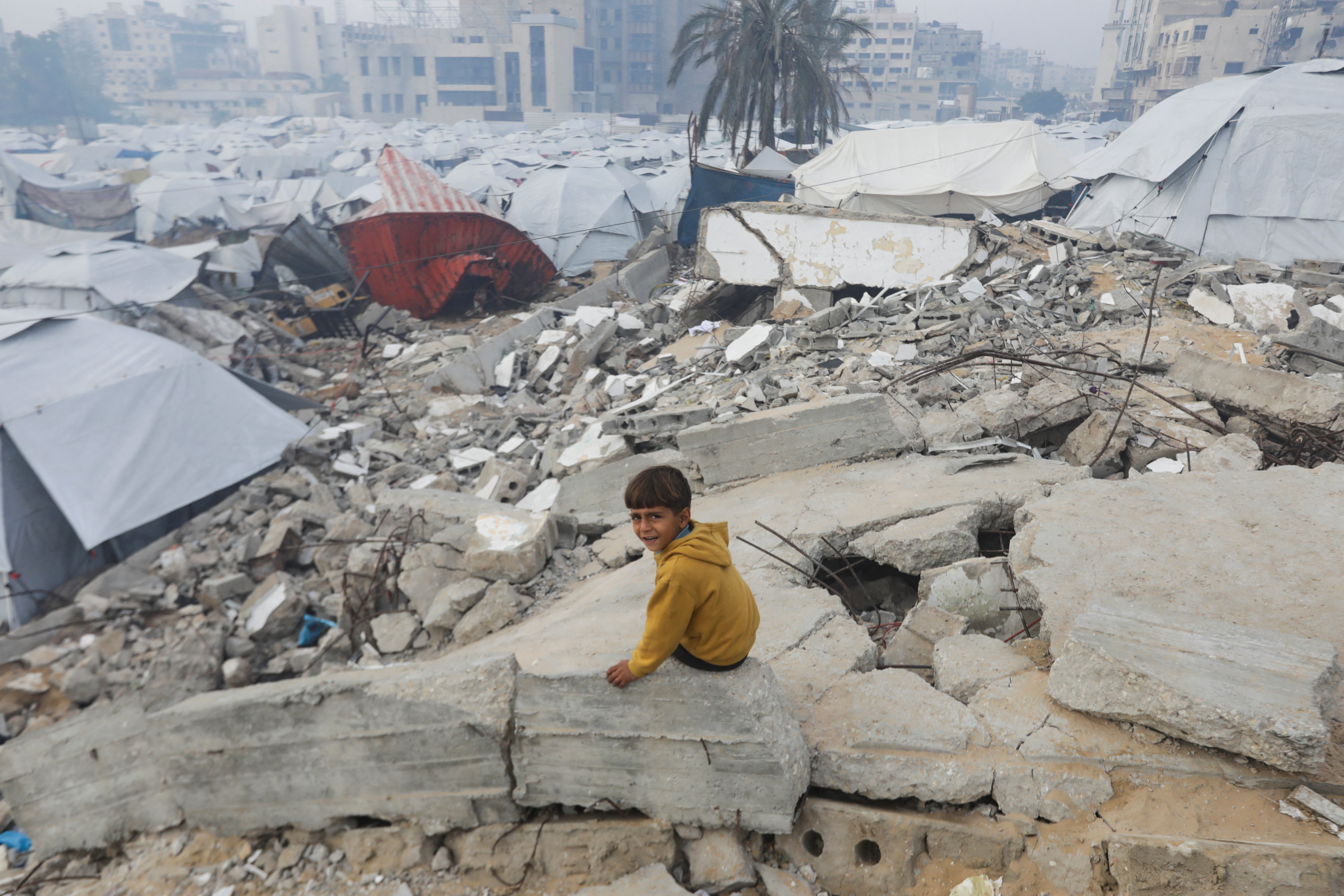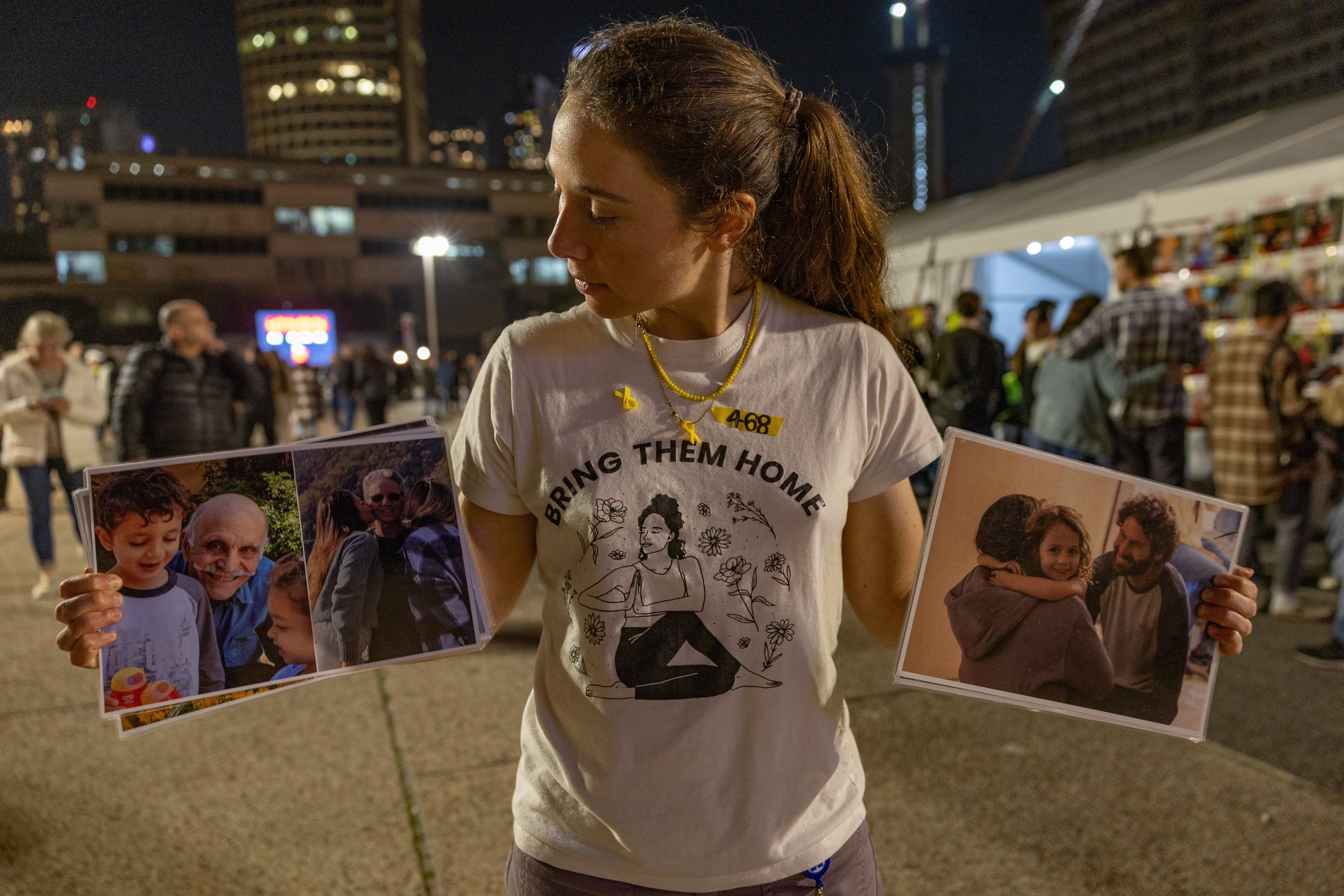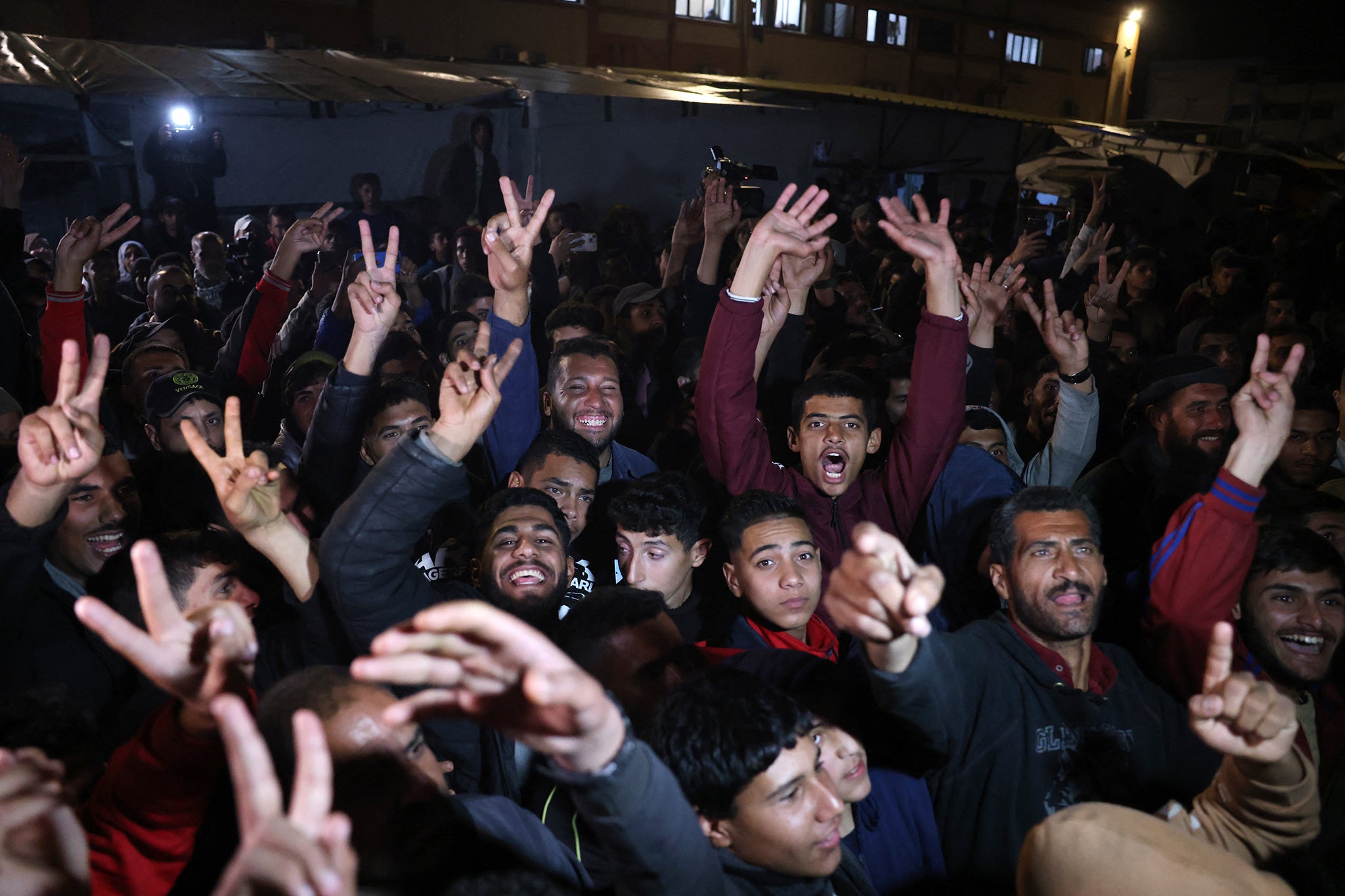The US has said it is confident that the historic Gaza ceasefire and hostage-release deal will come into effect on Sunday, despite Israeli prime minister Benjamin Netanyahu having accused Hamas of backtracking on the deal. Mr Netanyahu had also delayed a vote by his cabinet to approve it.
America’s top diplomat, secretary of state Antony Blinken, said at a briefing on Thursday evening: “On the ceasefire, I am confident. I fully expect that implementation will begin ... on Sunday.” He added it would take “tremendous effort, political courage, compromise” to ensure that the deal endures and that it brings to an end 15 months of war.
“It’s not exactly surprising that, in a process and negotiation that has been this challenging and this fraught, you may get a loose end,” Mr Blinken said.
Mr Netanyahu, who is no stranger to posturing over Gaza, claimed in a morning statement issued by the Israeli prime minister’s office: “Hamas has reneged on parts of the agreement reached with the mediators and Israel in an effort to extort last-minute concessions.” He added the situation had created a “last-minute crisis” over the deal – which was announced on Wednesday by mediator Qatar –but did not elaborate.
Minutes after that statement was released, senior Hamas official Izzat el-Reshiq said via the group’s Telegram channel that Hamas was committed to the truce agreement. Hours later, Israeli media reported that the final hurdles had been cleared and that the Israeli cabinet was due to meet on Friday to sign off the truce.
The deal outlines a six-week initial ceasefire, with the gradual withdrawal of Israeli forces from the Gaza Strip, and hostages taken by Hamas to be freed in exchange for Palestinian prisoners currently held in Israeli jails.

Hamas triggered the war in Gaza by attacking southern Israel on 7 October 2023, killing around 1,200 people and taking another 250 people hostage. Israel says 94 of the hostages remain inside Gaza, but a third are now believed to be dead. Israel’s retaliatory offensive has killed almost 47,000 Palestinians and forced around 90 per cent of Gaza’s 2.3 million residents from their homes, often more than once.
The latest intervention by Mr Netanyahu turned jubilant celebrations into extreme anxiety both in Israel and inside Gaza. In Gaza, where civilians are living in makeshift tents in the grip of one of the most acute humanitarian crises in the world, many fear there could be a surge in Israeli airstrikes in the hours before the ceasefire is formally enforced – if it gets that far.
In Israel, some of the families of the hostages, hoping their loved ones will be among those coming home after more than 466 days in captivity in Gaza, now fear that the truce could be scuppered before it comes into effect. In the first phase of the ceasefire, 33 hostages are due to be released, including all women and children as well as men over 50.
Gil Dickmann, who has spent more than a year campaigning for the release of their cousin Carmel Gat, compared the wait and the indecision to “psychological terror”. Carmel, who was abducted by Hamas from Kibbutz Beeri on 7 October, was among those on the list to be released in the first phase of the deal. However, she was found shot dead by her captors in September, when a previous attempt to get an agreement over the line failed at the 11th hour.
“It’s very troubling—we’ve all learnt to trust no one,” Mr Dickmann told The Independent, adding the families of the hostages had just sent messages confirming the deal was not yet signed. “Most of the families have just turned off their TVs and logged off social media,” he added.
Mr Dickmann said he didn’t think Mr Netanyahu or Hamas would defy incoming US president Donald Trump, whose inauguration on Monday has been seen as the driving force – and cut-off point – for the deal.

Speaking at Hostages Square, a rallying point in Tel Aviv, his sister Shay said their family had experienced first-hand what happens when deals fall through - Carmel was due to be next on the list to be freed. “This deal must go all the way, If this opportunity is missed you have no idea how long will be until the next time, you have no idea if they will make it out alive,” she said breaking down into tears. “I realise that it is too late for us, we will never get the hug from Carmel we were waiting for but others can. One of the hostages Kfir was just eight months when he was taken. He has never had a birthday outside he must come back. No one can be left behind.”
In Gaza, families said they were worried that Israel’s bombardment might get worse in the lead-up to any truce – and that even if the guns go silent, they will not be able to go home.
“We all worry about the next 72 hours,” said one man living in a tent, who asked not to be named for security reasons. “We also worry we will have nothing to go home to.” NGO Action for Humanity has warned that the prospect of a truce does “give Israel a blank cheque” for targeting Gaza.
Israel airstrikes killed at least 77 people in Gaza overnight on Thursday, residents and authorities in the territory said, hours after the ceasefire was announced by lead mediator Qatar. The armed wing of Hamas also claimed that an Israeli strike had targeted a location where a female hostage set to be released in the first phase of the ceasefire deal was being held, but gave no details of her condition.

Back in Israel, Udi Goren, whose cousin, Tal Haimi, a civil engineer, was killed during the 7 October attack – his body is being held by Hamas – said the stress was unbelievable for families. “These are truly probably the most stressful days we have experienced in over a year, since the last deal [in November 2023, when a truce lasted a week and around 100 hostages were released].
“Even though Trump said the deal is sealed, it hasn’t been yet. For us, we have seen so many disappointments over these past 15 months that I’ll believe it when I see it.
“It doesn’t matter where you stand politically – if you affiliate with Israel, if you care for the Palestinians – but we must realise that if you want to end suffering on both sides, the key, the first domino stone that would set off this process, is bringing back all the hostages. Because only when the last hostage is back would hostilities end, would the war end, would we be able to start rebuilding Gaza.”
Mr Netanyahu has faced great domestic pressure to bring home the hostages, but his far-right and hardline coalition partners have threatened to bring down his government if he makes too many concessions. He has enough opposition support to approve an agreement even without those partners, but doing so would weaken his coalition.
National security minister Itamar Ben Gvir has come out against the deal, while finance minister Bezalel Smotrich’s Religious Zionism Party said in a statement that its condition for remaining in the government would be a return to fighting at the end of the first phase of the deal, in order to destroy Hamas and bring all the hostages back.
Mr Goren said that the pair should be “ashamed”.
“At this point, saying you stand between parents seeing their child for the first time in 15 months, something that could happen in three days... who are you? What kind of person are you? It’s beyond me.
“They should be ashamed of themselves. That is really all that I can say about them.”







